- Home
- Heather Graham
Beneath a Blood Red Moon Page 17
Beneath a Blood Red Moon Read online
Page 17
Page 17
At last, as he bid good-bye to their host, he looked for her. His eyes met hers across the room. He saluted her, again bowing deeply, taking his leave.
“What’s wrong? You seem distracted,” Sean said.
She cast back her head and smiled at him. “No more, Sean. No more. ” She felt a tremendous relief. Aaron was gone.
He had believed her; he had recognized her strength, and he had left. Thank God (if God still heard her). Life was torment enough without creatures like Aaron Carter to make matters worse.
That night, young Lilly Wynn awoke. She felt as if her name were being whispered upon the air, as if the beautiful winter’s night were calling to her.
It wasn‘t the night. It was him. He had said that he would come to her when she had met him at the soiree. He was kin, she thought, giggling. But no matter. He was distant kin. She had warned him about Papa, and he had said that he would come in the night, and her father would never know. It was so secretive, so romantic . . . Yes, she could hear her name, he called her name.
She rose, feeling as if the air itself enwrapped her with a strange, sensual embrace. She wanted to hurry to the courtyard, to dance beneath the magical light of the stars and the moon. She was very nearly eighteen, well in a marriageable age, and anxious that her papa should give her permission to wed. Other girls her age were long married. Papa was so strict! Tonight she dreamed of a lover, of a man to come, to touch her, make her feel more of this elusive magic.
The Wynn yard was deep. Wrought-iron chairs and tables sat along tile paths. Fountains bubbled.
In the far corner of the property, ornate graves and mausoleums housed the Wynn dead. She ignored them, having seen them all her life. They were but a part of her home. She looked up to the moon, to the stars. Her soft blond hair blanketed her shoulders like a cape as she spun about, and yet then . . .
She paused, suddenly frightened. Behind her . . . there was something.
No. . .
She spun about. Again. Again.
She looked to the house. It was so far away. And when she turned again, it seemed . . .
It seemed that shadows had come alive. Shadows . . . writhing, dancing among graves and mausoleums, casting darkness upon the face of an angel here, a Madonna there. The shadows twisted and curved . . .
And inched forward.
A scream rose in her throat. She had to reach the house; she had to come to her papa.
She turned, and slammed against a man. She backed away, looking upward into his face. His eyes fell upon her with a light like fire. Warmth invaded her. Yet she remained too frightened to speak.
“My little beauty!” he breathed.
She wanted to feel sensual again, as if the breeze stroked her, as if there were magic on the air.
The fear continued to choke her.
“Little one . . . ”
He lifted her gown so that it fell from her shoulders. She stood naked in the moonlight. Captured by his eyes. In terror, yet unable to move. His hands brushed over her, slid over the down at her pubis, between her thighs, over her breasts again, to her throat.
“I. . . I must go in!” she managed to whisper.
“Of course. ”
“I must. ” She was vaguely aware that she was still standing there before him, naked.
“Yes. ”
He stepped aside. She started to walk. She felt the darkness behind her. Felt as if shadows and evil breathed down her neck. She quickened her pace. The air, the wicked air! Now it felt as if it touched her with a stroke of evil, down her back, against her neck . . .
Yet evil was tempting. So tempting.
Evil felt good.
No. . .
The breath of air against her bare flesh was erotic. The whisper of it seemed warm against the winter, like a blaze stoked within her soul. . .
Oh, God, oh, God, she was far too fanciful. . .
She turned, wanting to scream . . .
But no sound left her lips.
For he touched her, drew her to him, seduced; and the warmth of her life’s blood flowed between them, and the chill of winter became the fires of hell.
Eighteen sixty-one came along, and Louisiana seceded from the Union. Sean came to Meg’s house, bursting through the front door in a fury. Her household servants scattered, silently disappearing. They were alone on the beautiful broad staircase of Montgomery Plantation. He was in a rare passion, all but breathing fire, and Meg felt a momentary unease.
“I have to go,” he told her. Having money, he‘d formed a cavalry unit with himself as captain. It hadn’t mattered that he wasn‘t at all sure that war was right, or that the South could win a war.
This was his home; these were his people. His unit was now being called to war, and he’d be riding away. “I have to go, and damn you, damn you. I love you. Marry me. ”
“I can’t!” she whispered, heartbroken.
He shook his head, his frustration and fury greater. He strode the three steps to reach her, and swept her into his arms. He kissed her deeply, ravaging her mouth. His hands were tearing into her clothing, touching her, touching her more, demanding greater and greater intimacy. Her clothing tore away, lay scattered across the stairs. His mouth moved with an urgent hunger over her flesh until she was shivering and shaking and in a tempest to match his own. She kissed him furiously in return, nails raking his back. She very nearly bit into his shoulder. . .
She felt the Persian stairway runner against her back, the hardness of the wood beneath it. He made love with a reckless, desperate passion, and when he was done, she found that she was sobbing, clinging to him, whispering that she loved him but that she could not marry him. Puzzled, he demanded to know why. And at last she told him that if they both survived the war, she‘d explain. But marriage didn’t matter. She‘d be here, she’d be here waiting, and she‘d love him until the end of time. That would have to be enough.
It wasn’t enough, he told her, but it was all that he had And he made love to her a second time, more gently, and yet with the same searing passion that all but stole thought and reason from her.
Then he rode away.
CHAPTER 5
Sean read and reread the police reports taken by the officers who had thus far worked the homicides.
On Monday morning he’d be having his first meeting with the task force assigned to the murders, and he wanted to make sure he hadn’t missed important details in any phase of the investigation.
A tourist couple had first come upon the body of Jane Doe in the cemetery. The husband’s rueful statement read: “Okay, so we were warned that the cemeteries were in a dangerous neighborhood, but we weren’t expecting anything like this. I’d even heard that there were bones sticking out of the graves now and then, but, oh, God, nothing like this. Nothing like this. ” Pierre had made an interesting comment in his medical report: Jane Doe, laid out on a tomb as if on a bed, had been left in a very similar position and appearance to Jack the Ripper’s fifth victim, Mary Kelly.
Jane Doe’s head had been completely severed, and though Mary Kelly’s hadn’t, the body mutilations were incredibly similar, down to the way that parts removed had been arranged around the body.
The photos were enough to make even the most street-hardened cop sick for a week. Luckily, the discovery of the body had been early and the young couple in the cemetery had been so shocked and horrified that they hadn’t looked long before hysterically hailing a police car on the street. No one but cops— and the murderer (murderers?)—had seen the body. The police had been honest with the press regarding the fact that she had been decapitated and mutilated, but the police had carefully guarded details of that mutilation. The young couple had returned to their home—in Alaska, thank God for small favors—that very night. The wife had been sedated, and both she and her husband begged not to be identified to the press. She was hysterical, anxious not to be asso
ciated with the murder in any way. So much for tourism; Sean doubted they’d be returning to New Orleans. Still, it had been a break for the cops. Too many people wanted the sensationalism of a press interview. The young couple from Alaska had been far too afraid of the murderer.
Sean picked up Pierre’s forensic report. The list of trauma to the poor, savaged body was endless. The good seemed to be that most of the wounds were postmortem. He didn’t need the medical report to remember the autopsy. He’d stood by Pierre while the medical examiner cut into what was left of the body, speaking his findings to the microphone suspended above the body in an even, enunciated voice. It wasn’t something he’d forget.
He set the report down, and dragged his fingers through his hair. Jane Doe, decapitated, destroyed. A pimp out on Bourbon Street. Decapitated, not mutilated. Did the killer only mutilate women? Was it even the same killer, or did they have a pair of maniacs with similar method roaming the streets. It wouldn’t be the first time unrelated murders had occurred with fearfully close timing in New Orleans.
He looked over at the computer screen on his desk, then pushed the exit button with an aggravated sigh.
It wasn’t that he couldn’t find similar homicides across the country. The problem was that he could find far too many. The microchip had done amazing things. He’d described their recent murders for the computer, and it had seemed that the information returned to him scrolled endlessly.
He’d pushed the wrong keys, he told himself morosely. Crimes, solved and unsolved, from more than a century past had appeared. Jack the Ripper appeared on the screen, along with the New Orleans Axeman, Jeffrey Dahmer, and Theodore Bundy. He needed to try again, entering—for the time being—
only the past few years’ worth of unsolved crimes.
“Voodoo, hoodoo,” Jack said, arriving by the side of his desk and plopping down a stack of books.
Sean looked up at him.
“Read the morning papers?”
Sean shrugged. “Under the circumstances, I think the press has been kind. Did I tell you that you had to come in here today?”
Jack grinned. “I knew you’d be in. ”
“Ah. Well, you’re a good kid, Jack. ”
“I’ve been trying a few angles. Doing a lot of reading. What do you think of voodoo?” Sean leaned back, arching a brow. “What do I think of voodoo? Let me see . . . okay, back a few centuries ago, slave traders dragged men out of Africa. Those guys brought pieces of an old religion with them here. For instance, a snake is important in many of the voodoo rites; it is referred to as the great Zombi. Their ‘voodoo’ was something they could use against their masters. Then Marie Laveau came along and made voodoo into big business. She worked as a hairdresser and used the gossip she heard to make the populace believe she knew the deep, dark secrets and desires of her clients, and had the power to ‘see. ’ Today, voodoo is still a major source of income for many shop folk in the Quarter. ”

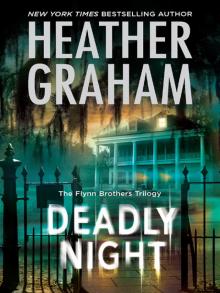 Deadly Night
Deadly Night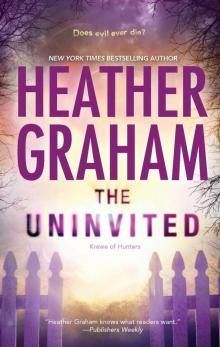 The Uninvited
The Uninvited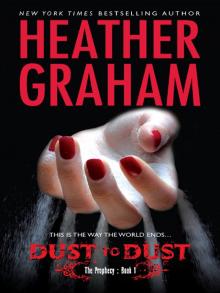 Dust to Dust
Dust to Dust Heart of Evil
Heart of Evil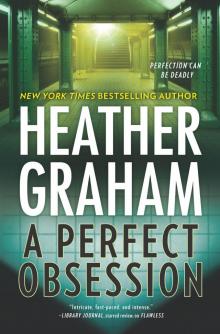 A Perfect Obsession
A Perfect Obsession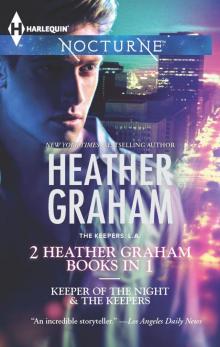 The Keepers
The Keepers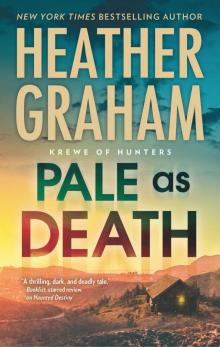 Pale as Death
Pale as Death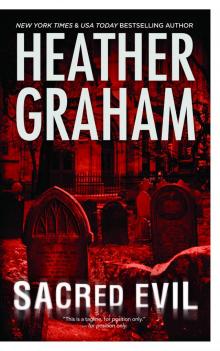 Phantom Evil
Phantom Evil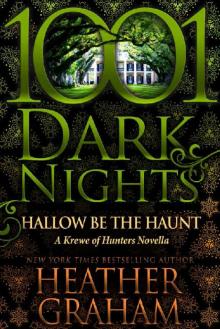 Hallow Be the Haunt
Hallow Be the Haunt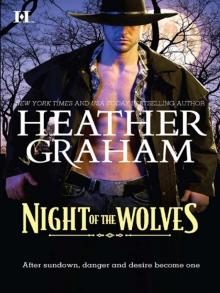 Night of the Wolves
Night of the Wolves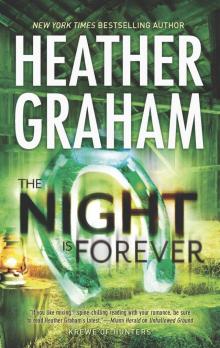 The Night Is Forever
The Night Is Forever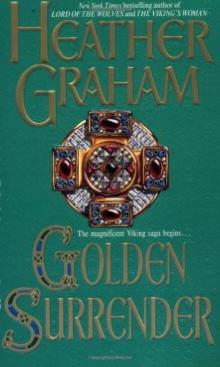 Golden Surrender
Golden Surrender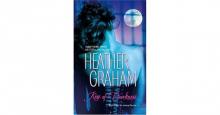 Kiss of Darkness
Kiss of Darkness Beneath a Blood Red Moon
Beneath a Blood Red Moon A Dangerous Game
A Dangerous Game Ghost Shadow
Ghost Shadow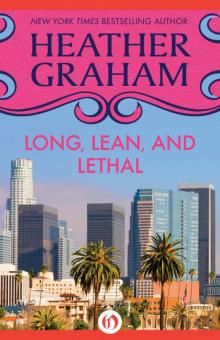 Long, Lean, and Lethal
Long, Lean, and Lethal Fade to Black
Fade to Black The Rising
The Rising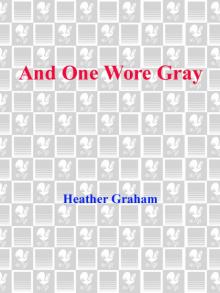 And One Wore Gray
And One Wore Gray Rebel
Rebel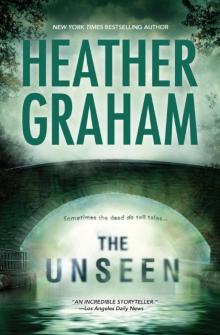 The Unseen
The Unseen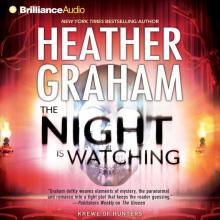 The Night Is Watching
The Night Is Watching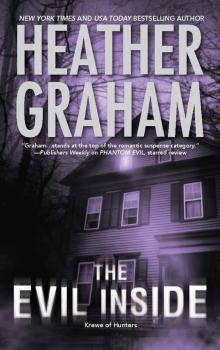 The Evil Inside
The Evil Inside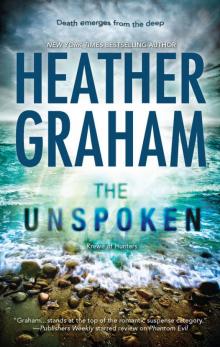 The Unspoken
The Unspoken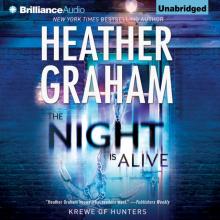 The Night Is Alive
The Night Is Alive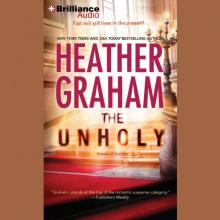 The Unholy
The Unholy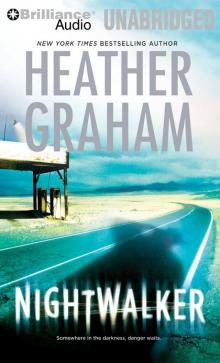 Nightwalker
Nightwalker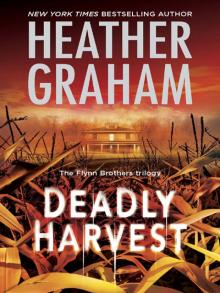 Deadly Harvest
Deadly Harvest An Angel for Christmas
An Angel for Christmas A Pirate's Pleasure
A Pirate's Pleasure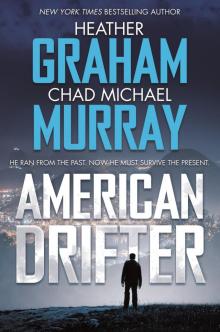 American Drifter
American Drifter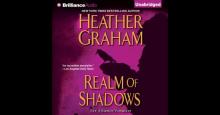 Realm of Shadows
Realm of Shadows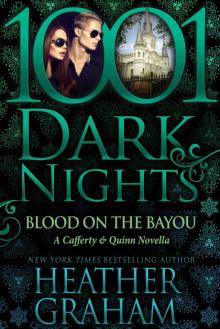 Blood on the Bayou
Blood on the Bayou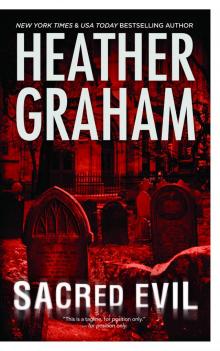 Sacred Evil
Sacred Evil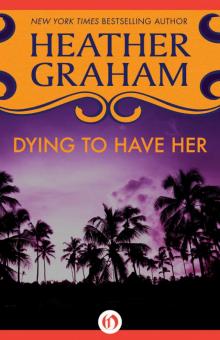 Dying to Have Her
Dying to Have Her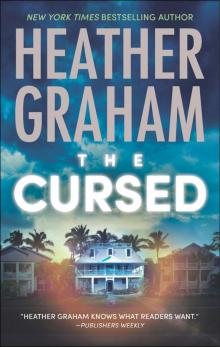 The Cursed
The Cursed Captive
Captive Hurricane Bay
Hurricane Bay Drop Dead Gorgeous
Drop Dead Gorgeous Ghost Memories
Ghost Memories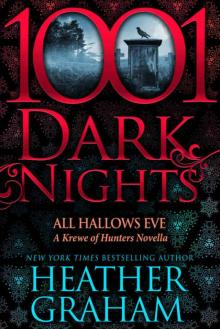 All Hallows Eve
All Hallows Eve Dying Breath
Dying Breath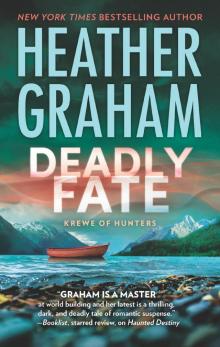 Deadly Fate
Deadly Fate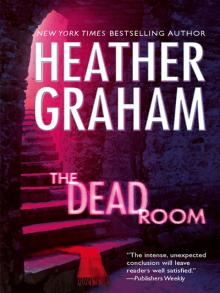 The Dead Room
The Dead Room Lord of the Wolves
Lord of the Wolves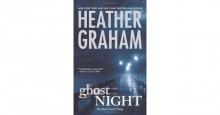 Ghost Night
Ghost Night Ghost Walk
Ghost Walk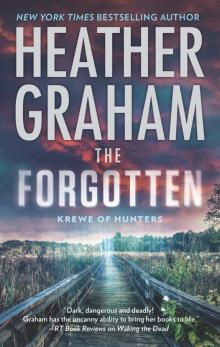 The Forgotten
The Forgotten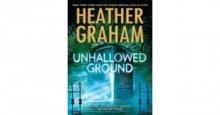 Unhallowed Ground
Unhallowed Ground One Wore Blue
One Wore Blue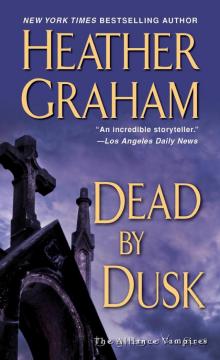 Dead By Dusk
Dead By Dusk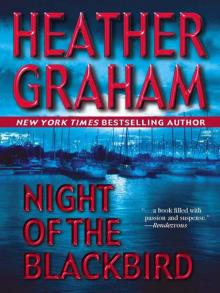 Night of the Blackbird
Night of the Blackbird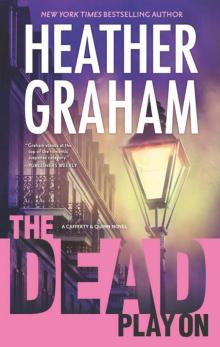 The Dead Play On
The Dead Play On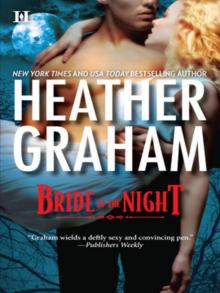 Bride of the Night
Bride of the Night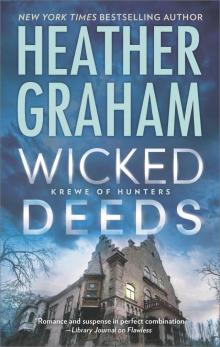 Wicked Deeds
Wicked Deeds The Forbidden
The Forbidden Triumph
Triumph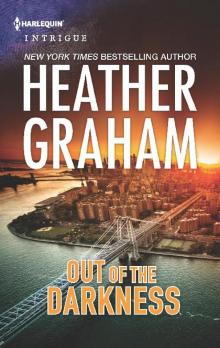 Out of the Darkness
Out of the Darkness Love Not a Rebel
Love Not a Rebel The Last Noel
The Last Noel Tall, Dark, and Deadly
Tall, Dark, and Deadly The Death Dealer
The Death Dealer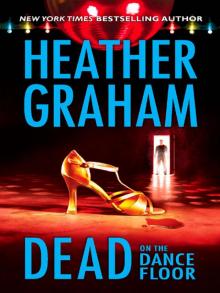 Dead on the Dance Floor
Dead on the Dance Floor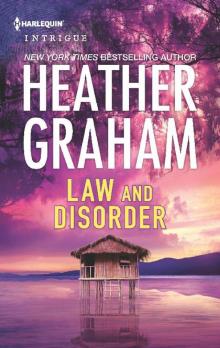 Law and Disorder
Law and Disorder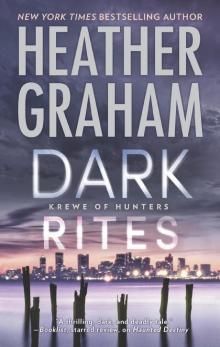 Dark Rites
Dark Rites New Year's Eve
New Year's Eve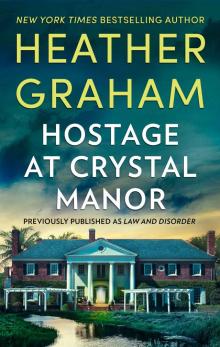 Hostage At Crystal Manor
Hostage At Crystal Manor And One Rode West
And One Rode West Home in Time for Christmas
Home in Time for Christmas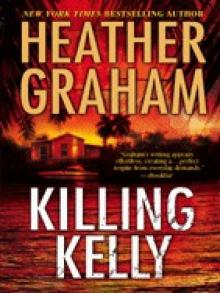 Killing Kelly
Killing Kelly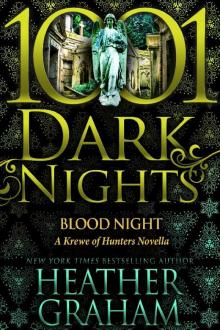 Blood Night
Blood Night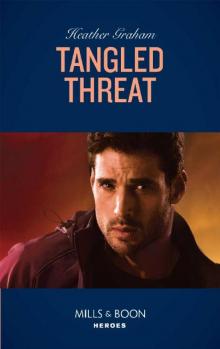 Tangled Threat (Mills & Boon Heroes)
Tangled Threat (Mills & Boon Heroes)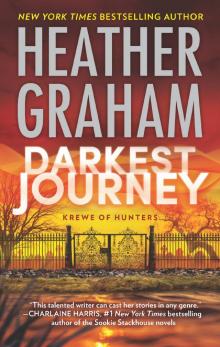 Darkest Journey
Darkest Journey Glory
Glory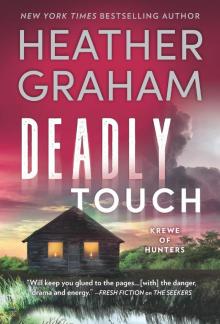 Deadly Touch
Deadly Touch An Unexpected Guest
An Unexpected Guest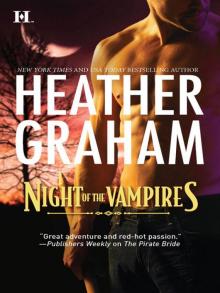 Night of the Vampires
Night of the Vampires Seize the Wind
Seize the Wind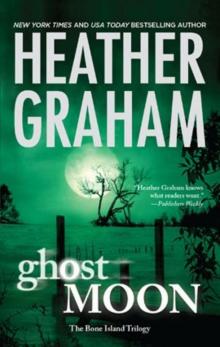 Ghost Moon
Ghost Moon The Vision
The Vision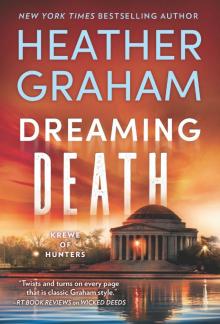 Dreaming Death
Dreaming Death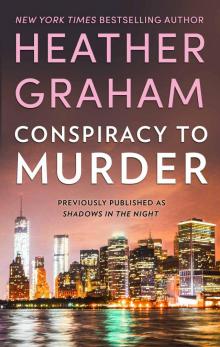 Conspiracy to Murder
Conspiracy to Murder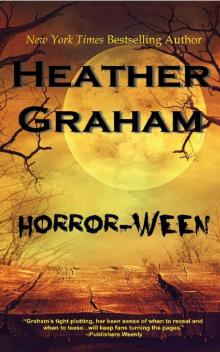 Horror-Ween (Krewe of Hunters)
Horror-Ween (Krewe of Hunters)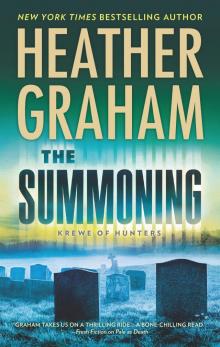 The Summoning
The Summoning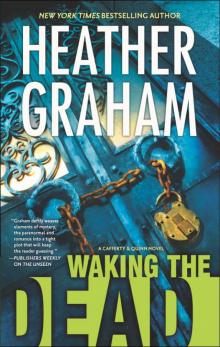 Waking the Dead
Waking the Dead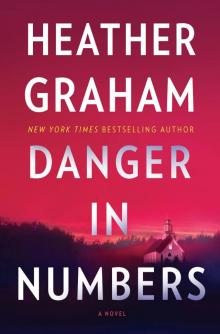 Danger in Numbers
Danger in Numbers The Hidden
The Hidden Sweet Savage Eden
Sweet Savage Eden Tangled Threat ; Suspicious
Tangled Threat ; Suspicious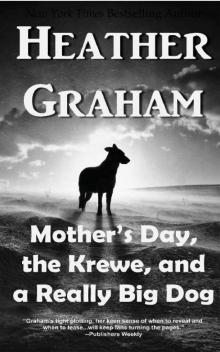 Mother's Day, the Krewe, and a Really Big Dog
Mother's Day, the Krewe, and a Really Big Dog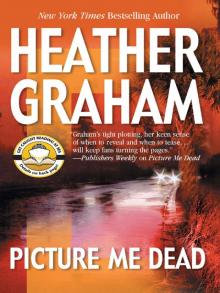 Picture Me Dead
Picture Me Dead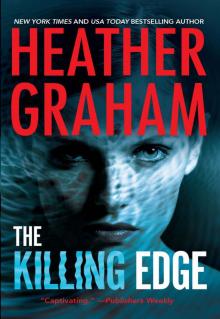 The Killing Edge
The Killing Edge St. Patrick's Day
St. Patrick's Day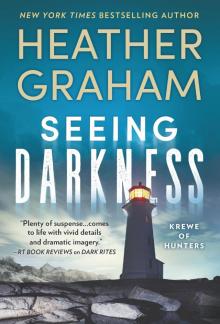 Seeing Darkness
Seeing Darkness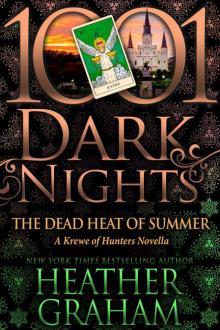 The Dead Heat of Summer: A Krewe of Hunters Novella
The Dead Heat of Summer: A Krewe of Hunters Novella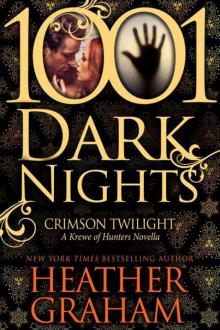 Crimson Twilight
Crimson Twilight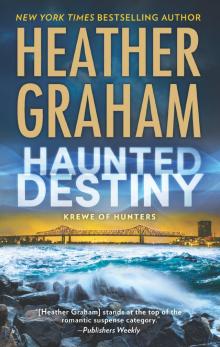 Haunted Destiny
Haunted Destiny Devil's Mistress
Devil's Mistress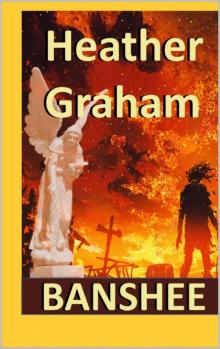 Banshee
Banshee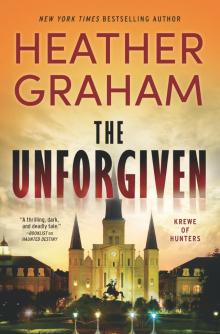 The Unforgiven
The Unforgiven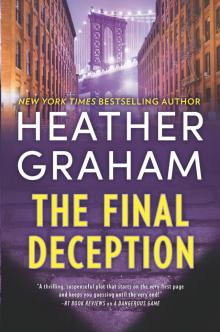 The Final Deception
The Final Deception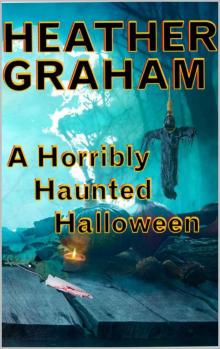 A Horribly Haunted Halloween
A Horribly Haunted Halloween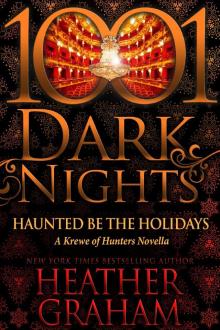 Haunted Be the Holidays
Haunted Be the Holidays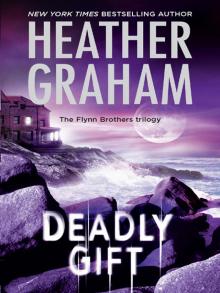 Deadly Gift
Deadly Gift Easter, the Krewe and Another Large White Rabbit
Easter, the Krewe and Another Large White Rabbit Haunted
Haunted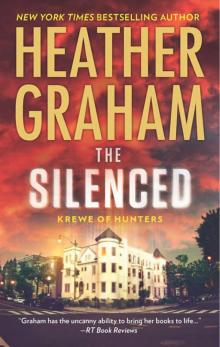 The Silenced
The Silenced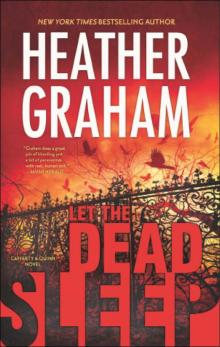 Let the Dead Sleep
Let the Dead Sleep Christmas, the Krewe, and Kenneth
Christmas, the Krewe, and Kenneth Big Easy Evil
Big Easy Evil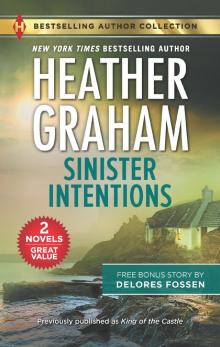 Sinister Intentions & Confiscated Conception
Sinister Intentions & Confiscated Conception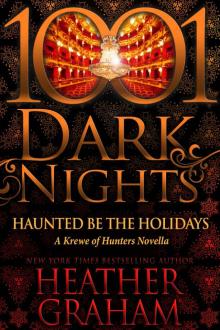 Haunted Be the Holidays: A Krewe of Hunters Novella
Haunted Be the Holidays: A Krewe of Hunters Novella Blood Red
Blood Red A Perilous Eden
A Perilous Eden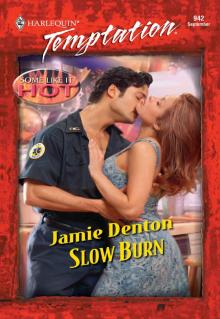 Slow Burn
Slow Burn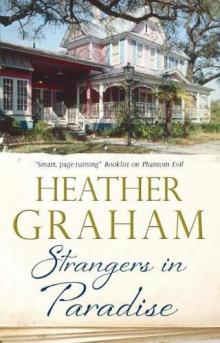 Strangers In Paradise
Strangers In Paradise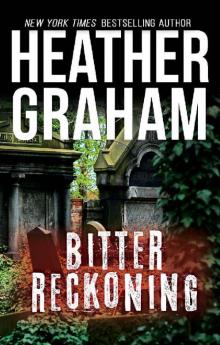 Bitter Reckoning
Bitter Reckoning Krewe of Hunters, Volume 1: Phantom Evil ; Heart of Evil ; Sacred Evil ; The Evil Inside
Krewe of Hunters, Volume 1: Phantom Evil ; Heart of Evil ; Sacred Evil ; The Evil Inside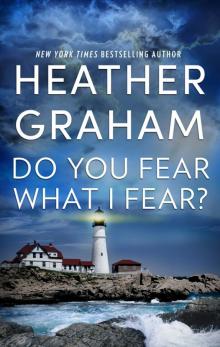 Do You Fear What I Fear?
Do You Fear What I Fear?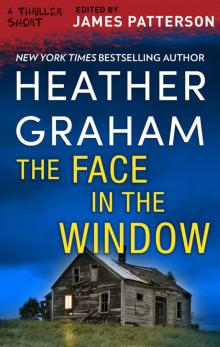 The Face in the Window
The Face in the Window Krewe of Hunters, Volume 3: The Night Is WatchingThe Night Is AliveThe Night Is Forever
Krewe of Hunters, Volume 3: The Night Is WatchingThe Night Is AliveThe Night Is Forever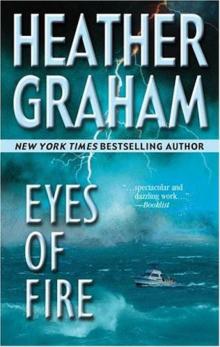 Eyes of Fire
Eyes of Fire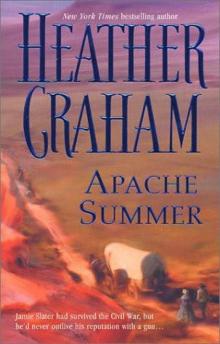 Apache Summer sb-3
Apache Summer sb-3 Sensuous Angel
Sensuous Angel In the Dark
In the Dark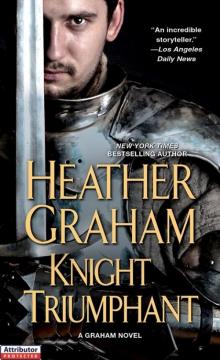 Knight Triumphant
Knight Triumphant Hours to Cherish
Hours to Cherish Tender Deception
Tender Deception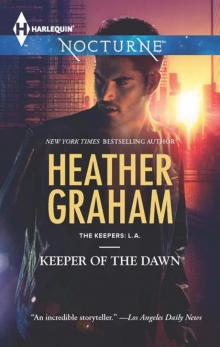 Keeper of the Dawn tkl-4
Keeper of the Dawn tkl-4 Apache Summer
Apache Summer Between Roc and a Hard Place
Between Roc and a Hard Place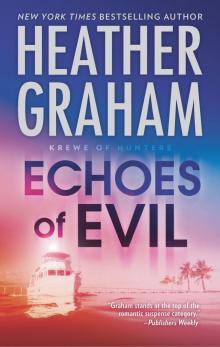 Echoes of Evil
Echoes of Evil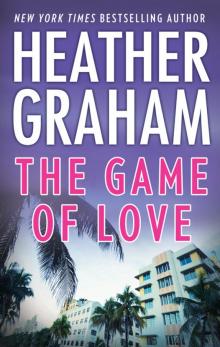 The Game of Love
The Game of Love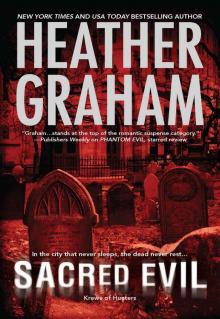 Sacred Evil (Krewe of Hunters)
Sacred Evil (Krewe of Hunters)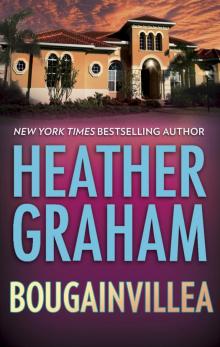 Bougainvillea
Bougainvillea Tender Taming
Tender Taming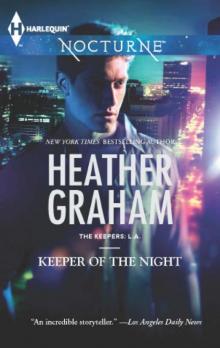 Keeper of the Night (The Keepers: L.A.)
Keeper of the Night (The Keepers: L.A.)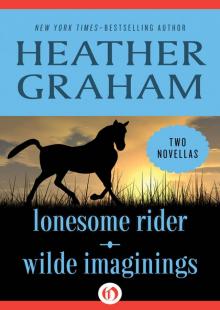 Lonesome Rider and Wilde Imaginings
Lonesome Rider and Wilde Imaginings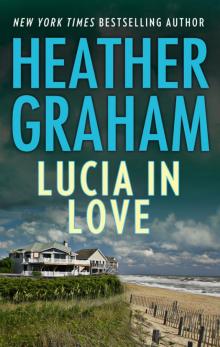 Lucia in Love
Lucia in Love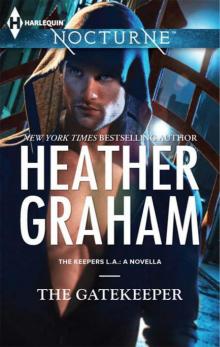 The Gatekeeper
The Gatekeeper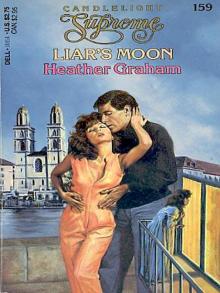 Liar's Moon
Liar's Moon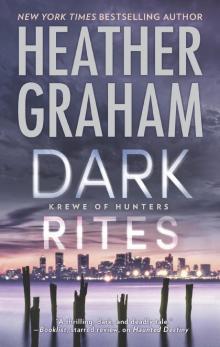 Dark Rites--A Paranormal Romance Novel
Dark Rites--A Paranormal Romance Novel A Season for Love
A Season for Love Krewe of Hunters, Volume 6: Haunted Destiny ; Deadly Fate ; Darkest Journey
Krewe of Hunters, Volume 6: Haunted Destiny ; Deadly Fate ; Darkest Journey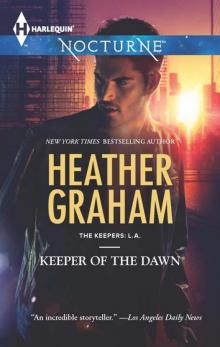 Keeper of the Dawn (The Keepers: L.A.)
Keeper of the Dawn (The Keepers: L.A.)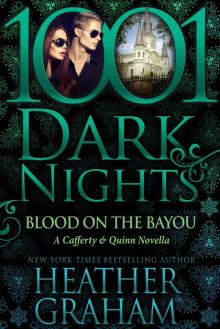 Blood on the Bayou: A Cafferty & Quinn Novella
Blood on the Bayou: A Cafferty & Quinn Novella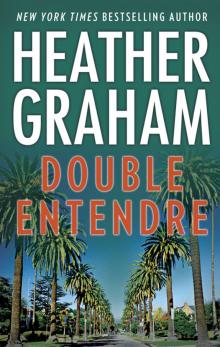 Double Entendre
Double Entendre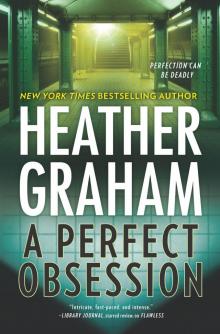 A Perfect Obsession--A Novel of Romantic Suspense
A Perfect Obsession--A Novel of Romantic Suspense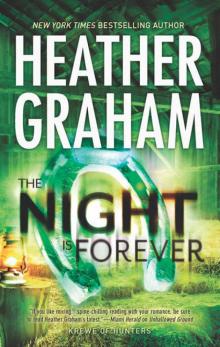 The Night Is Forever koh-11
The Night Is Forever koh-11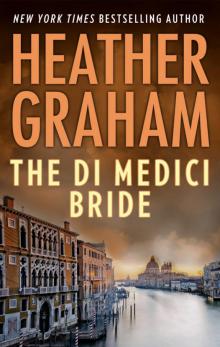 The Di Medici Bride
The Di Medici Bride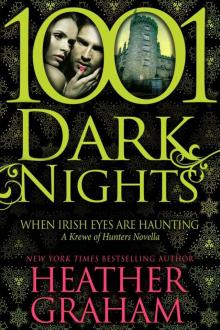 When Irish Eyes Are Haunting: A Krewe of Hunters Novella
When Irish Eyes Are Haunting: A Krewe of Hunters Novella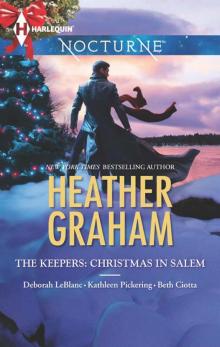 The Keepers: Christmas in Salem: Do You Fear What I Fear?The Fright Before ChristmasUnholy NightStalking in a Winter Wonderland (Harlequin Nocturne)
The Keepers: Christmas in Salem: Do You Fear What I Fear?The Fright Before ChristmasUnholy NightStalking in a Winter Wonderland (Harlequin Nocturne)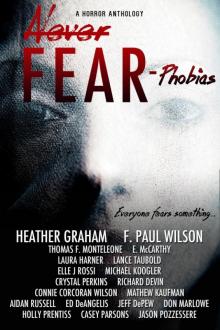 Never Fear
Never Fear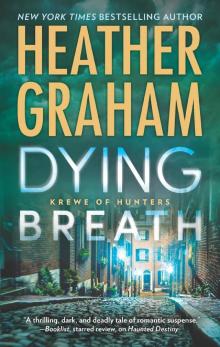 Dying Breath--A Heart-Stopping Novel of Paranormal Romantic Suspense
Dying Breath--A Heart-Stopping Novel of Paranormal Romantic Suspense If Looks Could Kill
If Looks Could Kill This Rough Magic
This Rough Magic Heather Graham's Christmas Treasures
Heather Graham's Christmas Treasures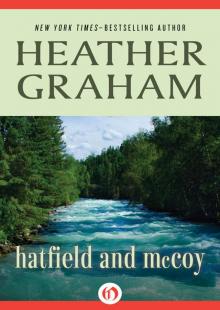 Hatfield and McCoy
Hatfield and McCoy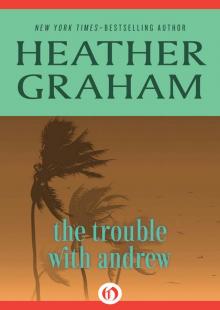 The Trouble with Andrew
The Trouble with Andrew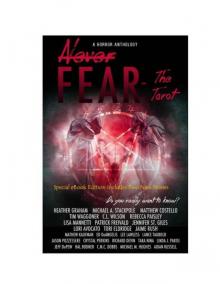 Never Fear - The Tarot: Do You Really Want To Know?
Never Fear - The Tarot: Do You Really Want To Know?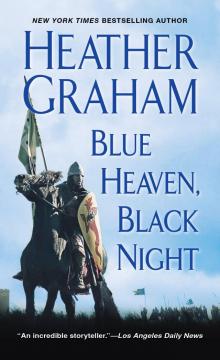 Blue Heaven, Black Night
Blue Heaven, Black Night Forbidden Fire
Forbidden Fire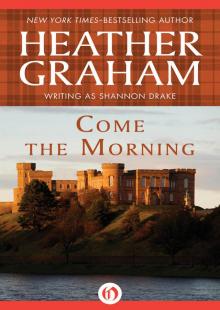 Come the Morning
Come the Morning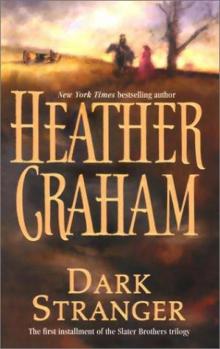 Dark Stranger sb-4
Dark Stranger sb-4 Lie Down in Roses
Lie Down in Roses Red Midnight
Red Midnight Krewe of Hunters Series, Volume 5
Krewe of Hunters Series, Volume 5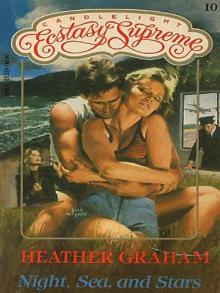 Night, Sea, And Stars
Night, Sea, And Stars Snowfire
Snowfire Quiet Walks the Tiger
Quiet Walks the Tiger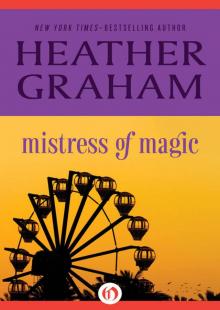 Mistress of Magic
Mistress of Magic For All of Her Life
For All of Her Life Runaway
Runaway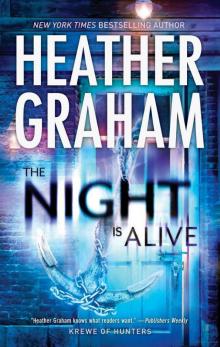 The Night Is Alive koh-10
The Night Is Alive koh-10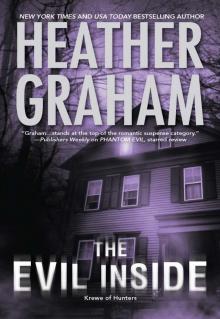 The Evil Inside (Krewe of Hunters)
The Evil Inside (Krewe of Hunters)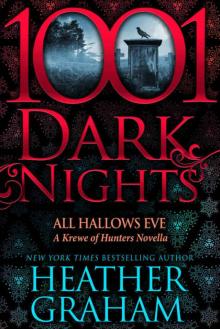 All Hallows Eve: A Krewe of Hunters Novella (1001 Dark Nights)
All Hallows Eve: A Krewe of Hunters Novella (1001 Dark Nights) Tomorrow the Glory
Tomorrow the Glory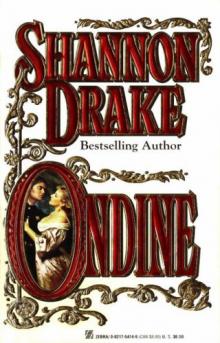 Ondine
Ondine Angel of Mercy & Standoff at Mustang Ridge
Angel of Mercy & Standoff at Mustang Ridge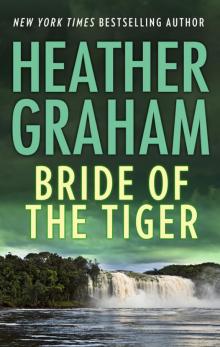 Bride of the Tiger
Bride of the Tiger When Next We Love
When Next We Love Heather Graham Krewe of Hunters Series, Volume 4
Heather Graham Krewe of Hunters Series, Volume 4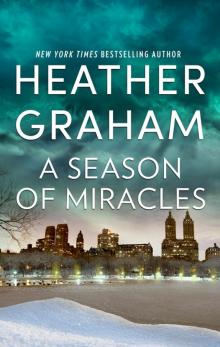 A Season of Miracles
A Season of Miracles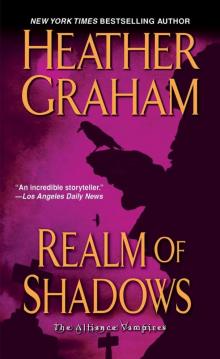 Realm of Shadows (Vampire Alliance)
Realm of Shadows (Vampire Alliance)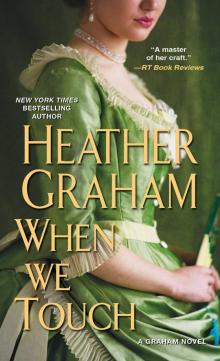 When We Touch
When We Touch Serena's Magic
Serena's Magic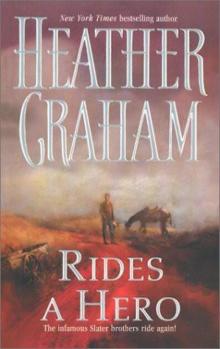 Rides a Hero sb-2
Rides a Hero sb-2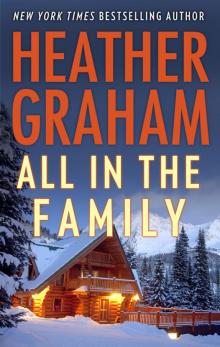 All in the Family
All in the Family Handful of Dreams
Handful of Dreams A Stranger in the Hamptons
A Stranger in the Hamptons Krewe of Hunters, Volume 2: The Unseen ; The Unholy ; The Unspoken ; The Uninvited
Krewe of Hunters, Volume 2: The Unseen ; The Unholy ; The Unspoken ; The Uninvited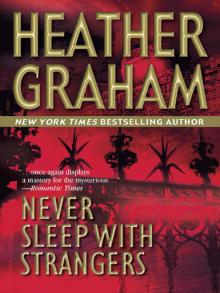 Never Sleep With Strangers
Never Sleep With Strangers Eden's Spell
Eden's Spell A Magical Christmas
A Magical Christmas Forever My Love
Forever My Love King of the Castle
King of the Castle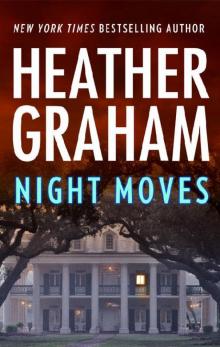 Night Moves (60th Anniversary)
Night Moves (60th Anniversary) The Island
The Island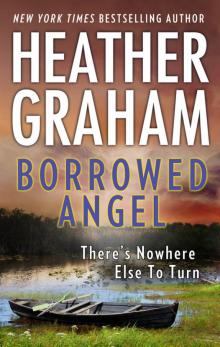 Borrowed Angel
Borrowed Angel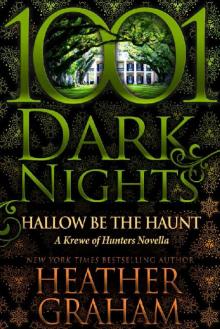 Hallow Be the Haunt: A Krewe of Hunters Novella
Hallow Be the Haunt: A Krewe of Hunters Novella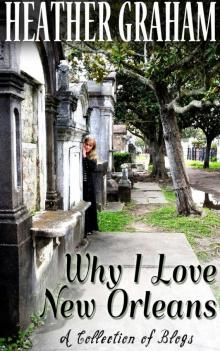 Why I Love New Orleans
Why I Love New Orleans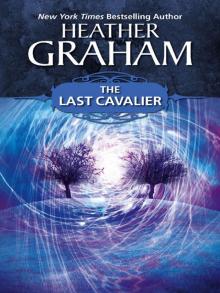 The Last Cavalier
The Last Cavalier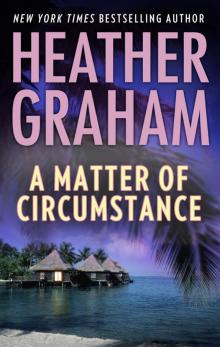 A Matter of Circumstance
A Matter of Circumstance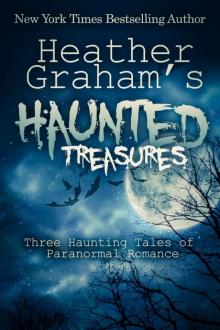 Heather Graham's Haunted Treasures
Heather Graham's Haunted Treasures Tempestuous Eden
Tempestuous Eden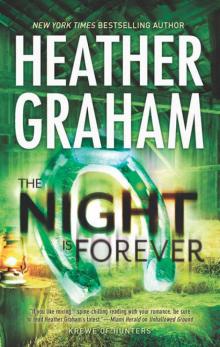 Krewe 11 - The Night Is Forever
Krewe 11 - The Night Is Forever